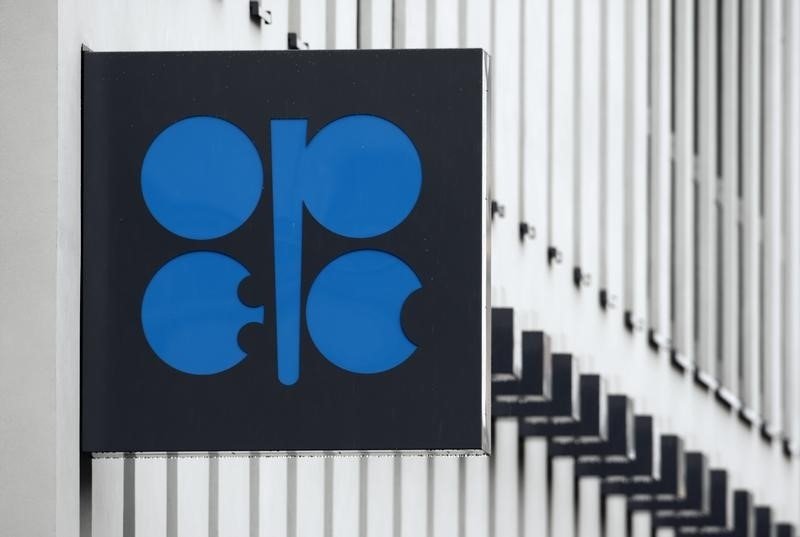OPEC supply cuts may have been aimed at short-sellers – UBS
2023.04.04 09:20

© Reuters.
By Geoffrey Smith
Investing.com — The surprise production cuts announced by nine members of the ‘OPEC+’ group at the weekend may have been aimed at crude short-sellers as much as anything else, according to analysts at UBS.
Giovanni Staunovo, a commodities strategist with UBS’ Chief Investment Office, said in a note to clients that it was “possible the surprise cut was aimed to clear the buildup of short futures and options positions in recent weeks.”
Crude oil futures typically trade with a net “long” bias, that hit an all-time high of 734,000 contracts in 2017 and has been declining steadily, albeit with significant short-term swings, since then. The weakening outlook for the global economy, due to successive interest rate hikes across the developed and most of the emerging world in the last two years, had driven that net long position down to a 10-year low of 154,300 by late March, as more and more financial players bet on crude prices heading lower.
Crude oil futures had leaped on the news and extended their gains on Tuesday. By 08:20 ET (12:20 GMT), futures were up 0.9% at $81.13, their highest since late January. was up 0.8% at $85.59
The move in net longs had already elicited criticism from OPEC ministers over recent months, who had warned that futures markets were divorced from the reality of a market where there is still little spare capacity.
They pointed to expectations of a big rebound in Chinese demand this year, which is likely to more than outweigh any drop in developed markets’ demand. Both OPEC and the International Energy Agency see the physical market swinging from a near-term supply surplus to a substantial deficit by the end of 2023.
“Voluntary production cuts are nothing new, but the scale of this round is unprecedented,” Staunovo said. “We continue to see Saudi Arabia and the other OPEC+ members keeping their hands on the oil wheel and remaining in control of the market.”
The cuts announced at the weekend mean that OPEC along with Russia and other major oil exporters have said they will take a combined 1.66 million barrels a day of output offline. Staunovo estimated that the actual reduction in supply is more likely to be around 1 million barrels a day, given that OPEC was already producing below its targeted level.
Staunovo also noted that the cuts may have been a reaction to the Biden administration going back on plans to refill the Strategic Petroleum Reserve, in an apparent attempt to push prices lower to take the edge off high .
“Higher prices should prevent U.S. shale producers from cutting investments,” Staunovo said.








